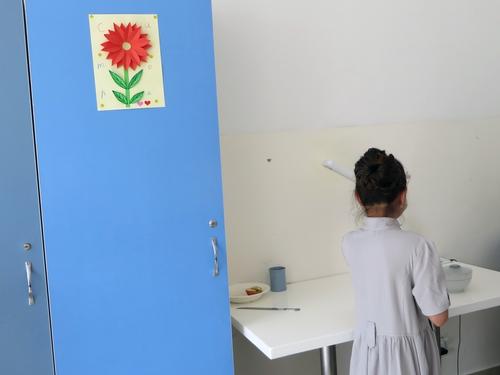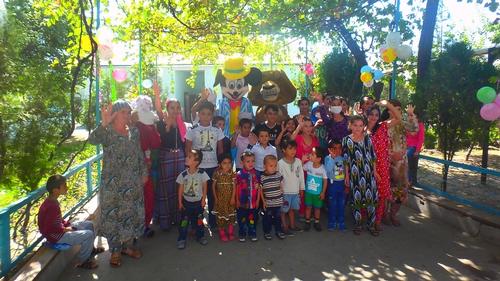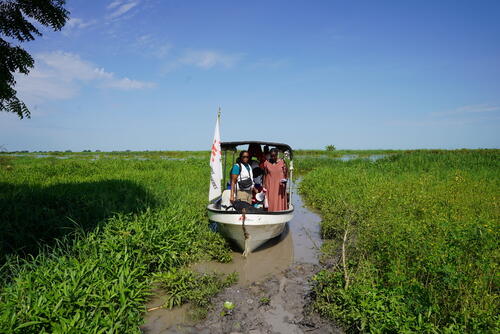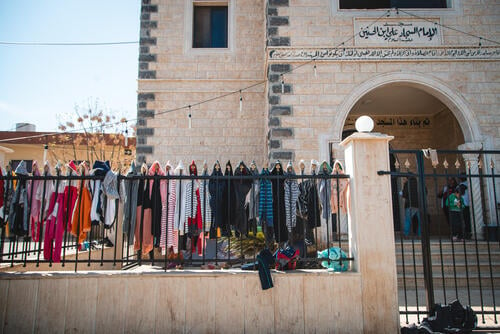The paediatric TB project in Dushanbe starts its first patient on a new treatment.
Delamanid is one of the first new TB medicines in over 50 years, and recently the project team in Dushanbe, Tajikistan's capital, started treating a young TB patient with it. It follows several months of preparations and negotiations with the Ministry of Health and its counterparts.
After seeing a presentation by MSF that detailed the successful use of delamanid to treat multi-drug resistant (MDR-) and extremely-drug resistant (XDR-) TB at the TB Symposium for Eastern Europe and Central Asia in March, the Ministry of Health allowed MSF to use the drug in the country. It was brought in through a humanitarian import waiver. The importation builds on the success of last year, as MSF was the first organisation in Tajikistan to bring bedaquiline into the Tajikistan.
Delamanid and bedaquiline offer patients with MDR-TB and XDR-TB, who would otherwise have no other alternatives, a more effective treatment and their only hope of being cured. For this reason, in high burden MRD-TB countries like Tajikistan, access to new TB medicines is essential.
Using new TB medicines is one of the key objectives of the project in Dushanbe. It also aims to help the National TB Programme of Tajikistan access newer drugs. Ultimately, this will lead to wider use of new medicines in the country and throughout the region due to improved collaborations with other MSF projects in Eastern Europe and Central Asia. In order to deliver the appropriate treatment for children, the project introduced drug compounding (combining drugs to create a formulation particular to a patient's needs) to make paediatric formulations of MDR-TB drugs.
Therapeutic play for paediatric patients in Tajikistan

In an attempt to break up the everyday routine for children undergoing tuberculosis (TB) treatment, MSF's psychosocial team organises celebration parties as part of the paediatric therapeutic play programme. Until MSF began operations in 2011, children with DR-TB did not receive the more intensive, potentially life-saving treatment needed for this form of the disease. MSF is now working with the Ministry of Health to treat paediatric TB cases and their family contacts, on an outpatient basis whenever possible. The children also receive nutritional and psychosocial support to help them adhere to their difficult regimens.
Patients who are being treated at home, in community centres and in hospitals are invited every two months to participate at events at the Machiton paediatric hospital. Almost 40 patients and their carers attended the two most recent events in September, and the next event is scheduled for November.
The objective of the parties is to help ease some of the anxieties for children who are hospitalised for TB treatment, as they face prolonged hospital stays and lengthy treatment regimens. The celebration parties offer a break and an opportunity for emotional support. The event agenda includes a support group session that allows patients to share their stories and experiences while also fostering friendships with other children who are undergoing similar treatment. An adherence support worker guides the discussion, focusing on sharing coping methods to help manage side effects of the medication, the difficulties of dealing with an often long treatment regimen and the importance of enjoying regular activities while undergoing treatment. Other activities include dancing, singing and cartoon character performances.
Adherence support workers from MSF, and the Ministry of Health, prepare the parties weeks in advance. They handle all the details, including invitations, the ordering of supplies, as well as organising performances by entertainers.
Children's recent birthdays are celebrated and they are given practical gifts such as toiletries. All the patients who attend receive a gift bag.






